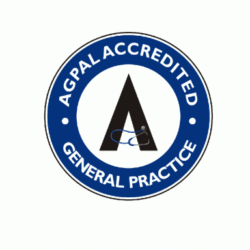
From the 1st of December this year, significant and important changes have been made to the cervical cancer screening program.
Until now, sexually active women between the ages of 18-69 years were screened on a two yearly basis with a Pap smear test. The new program replaces the smear with a five yearly Cervical Screening Test (CST) for women between the ages of 25-74 years. Extensive studies have shown that cervical cancer is incredibly rare in women under 25 and screening women under this age (i.e. 18-25) has not reduced the number of cases of cervical cancer or deaths from cervical cancer.
The CST detects the Human Papilloma Virus (HPV), the cause of 99% of cervical cancers. The traditional Pap test examined cervical cells looking for abnormalities that could lead to cancer. The CST looks for HPV, which is the cause of those cellular abnormalities.
The test procedure is the same. Your Doctor will still use a vaginal speculum to take a cell sample from your cervix, however, the sample is suspended in liquid rather than smeared onto a glass slide like a traditional pap test.
Your first CST will be performed when you are due for your next (or first) pap smear, which is generally two years from your last one. From that point on, the testing becomes five yearly (dependent on results of course).
The CST does not replace the need for HPV vaccination as the vaccine protects against some high risk HPV strains, but not all of them.
When HPV is detected from a CST sample, further testing can easily be performed on the same sample to determine the type of HPV present. The presence of certain high risk strains will determine whether further testing (such as a colposcopy) is recommended.
The ability of the CST to detect HPV and therefore detect the potential for high-grade lesion development makes the CST a far more sensitive test than traditional pap smears and will prevent even more cervical cancer cases.




